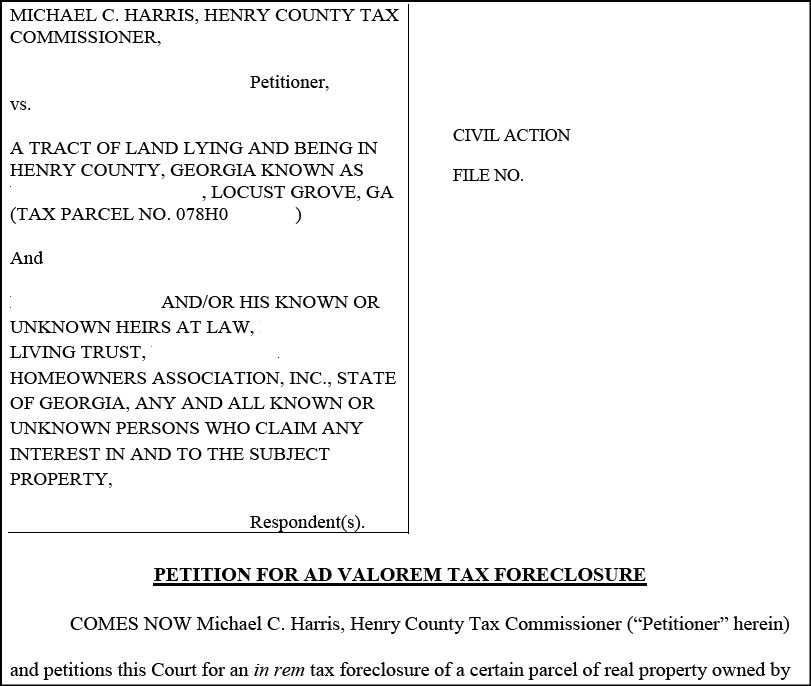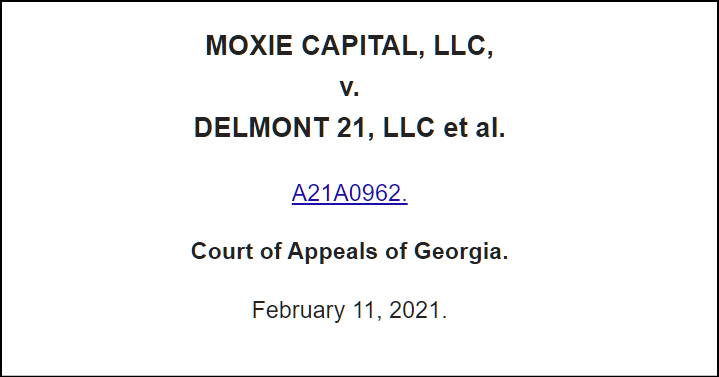
Who Gets Notice of a Tax Deed Foreclosure?
To determine who to serve with a Notice of Foreclosure to Redeem (also called a “barment”), the first place to look is the statutes dealing with tax sales. OCGA § 48-4-45 says that after 12 months from the date of a tax sale, the purchaser may start a tax deed foreclosure (foreclosure of the right to redeem) by sending notices to the owner of the property at the time of the tax sale, the occupant of the property, and all persons with a recorded right, title, interest, or lien upon the property.
Two additional parts of OCGA § 48-4-45 are important to understand. First, notice does not need to be provided to a person with no recorded interest in the property. And second, if the owner of the property at the time of the tax sale is deceased, the tax deed purchaser must serve the deceased’s heirs.
What is a Recordable Interest?
You may have heard the expression “title to property.” Georgia counties maintain real estate records for each property in the county. Accordingly, paperwork related to the property is “recorded” with the county when a property is purchased or sold. This paperwork helps determine who owns the property.
Similarly, a creditor will record a lien on the real estate records against the property if a person borrows money or owes a debt. These records are available to the public. Tax deed purchasers are responsible for notifying all persons with a recorded interest in the property.
Tyner v. Edge
The above seems simple enough, but as is often the case with most laws, there are gray areas. Including tax deed foreclosures. Tyner v. Edge, 843 S.E.2d 632 (2020), is a good example of a case that is in the grey area. In that case, Robert Tyner purchased a property from Frances Cowart without any paperwork. Tyner paid in full for the property, but Cowart died before transferring title to Tyner.
Tyner failed to pay taxes year, and the county sold the property to The Edge Company Family LLC at a tax sale. A year after the tax sale, Edge sent out barment notices in compliance with OCGA § 48-4-45. When Edge sent the barment notices, Tyner did not have a recorded interest in the property.
A lawsuit resulted. Tyner claimed he should have received the barment notice. In hindsight, this was a pretty straightforward case. OCGA § 48-4-45 does not require notice to a party with no recorded interest, and therefore the Georgia Court of Appeals ruled that Edge did not have to send a barment notice to Tyner.
Call Us!
Please call (404) 382-9994 to speak with an attorney about your tax deed questions.




